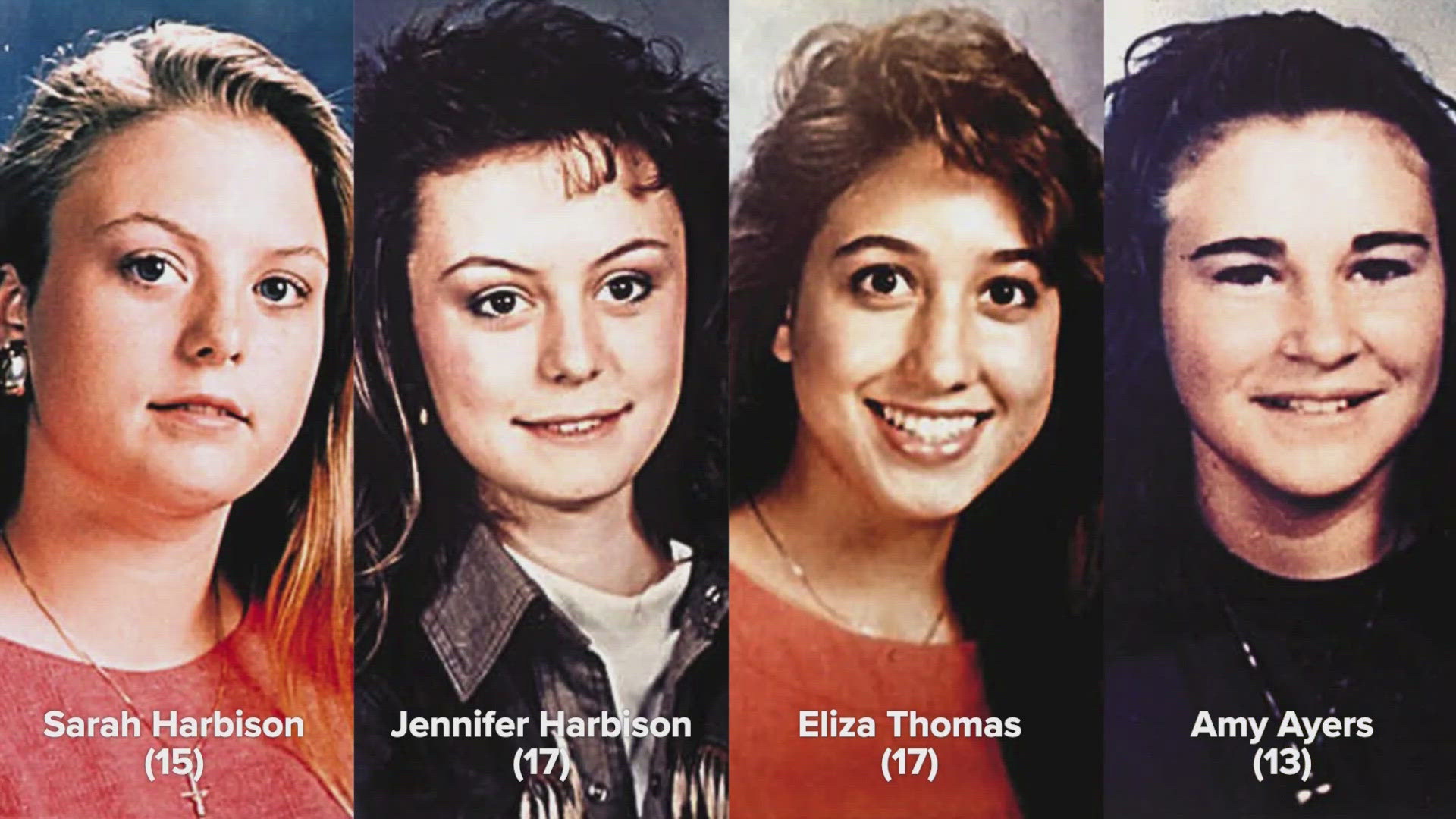AUSTIN, Texas — The night of Dec. 6, 1991, one of the most horrific crimes in Texas history happened as a group of teenage girls were about to leave an I Can’t Believe It’s Yogurt shop in Austin.
Jennifer Harbison, 17, her sister Sarah, 15, Eliza Thomas, 17, and Amy Ayers, 13, were killed.


The girls were friends and met because they all loved animals and were part of Future Farmers of America at school.
We sat down with Amy Ayers’ brother and his wife. They live in Stephenville, right here in North Texas. And we just thought it was important to hear their voices.
“She loved having fun, cared about other people, an animal person -- raised with animals,” said Amy's brother, Shawn Ayers. “Horses and cats were her favorites.”
Their murders rocked the city of Austin.
“Shock. Your body goes numb and you don’t know what to do,” Ayers said.
Police believe that this all began on the night of Dec. 6, 1991, when Eliza and Jennifer were closing up the yogurt shop.
“They think that perhaps either someone was in the store and or someone came in the back door and startled the girls when they were trying to clean,” said Angie Ayers, Amy’s sister-in-law.
The girls were bound with their own undergarments, shot in the head, raped, and their bodies set on fire.
“It’s called evil,” Angie said. “That’s what it is. No one with a mind, (conscience,) heart, or morals would be able to do that to four girls.”
Amy’s family says that she really fought for her life. She was hit with a cash register, and she was shot twice.
“They had to subdue her with strangling her, hitting her and shot her again,” Angie Ayers said. “And that’s why we continue our fight because she fought so hard to live.”
Austin police tracked down more than 700 leads, while their families took to the air to tell the world who their daughters were.
Police had a really tough time with this case from the very beginning because of the fire. Also the water sprinklers went off. Then, on top of that, the fire department poured more water on the scene. It destroyed the evidence.
"The firemen showed up and did their jobs, which was to put out the fire,” Angie said. “They put the fire out and found four dead girls.”
There were no breaks in this case for months, until three men were arrested in Mexico. Two of those men were wanted for a sexual assault in Austin, but in the end, it turned out that they were not the killers.
“They didn’t know exactly what was going on and they could tell the individuals had been somewhat coerced to confess,” Angie said.
In 1999, nearly eight years after the murders, Austin police arrested four suspects. Two of those suspects confessed, Michael Scott and Robert Springsteen. They went to trial and a jury found them guilty. Scott and Springsteen said they were interviewed for more than 20 hours, and that their confessions were coerced.
“The confessions matched,” Shawn said. “They were interviewed separately, but when they got to details, the details they both said matched perfectly.”
But the case isn’t over. Five years later, a federal judge ruled that their confessions couldn’t be used against each other in separate trials because federal law states that they should be able to confront each other in court, and that didn’t happen.
The men were set free.
"If both had been sitting in the courtroom at the same time, they would still be in prison,” Shawn said.
"They were never deemed totally innocent,” Angie said. “We’re waiting for a retrial.”
Why, decades later, have they not been tried again? That’s because in 2008 a new type of DNA called Y-STR revealed that DNA found on one of the girls did not match any of the men believed to be involved.
“It’s reasonable doubt,” Shawn said. “It’s a question we don’t have the answer to.”
Even though two men confessed and were convicted, the DNA clears them of sexual assault. The family still believes the men were involved. The big question is who does that DNA belong to? The family hopes new technology will help give them that answer.
The families continue to wait for justice, vowing to fight on and never forget Sarah, Jennifer, Eliza, and Amy.

